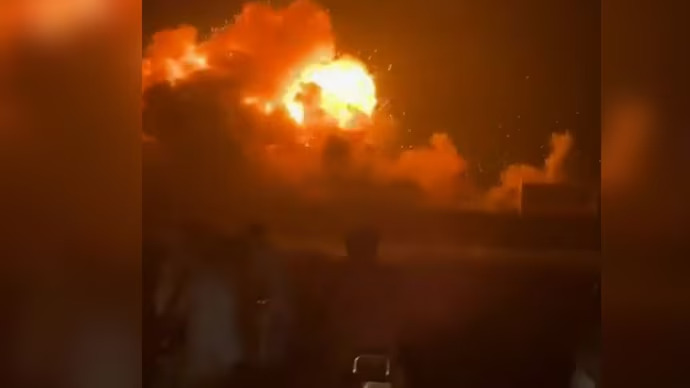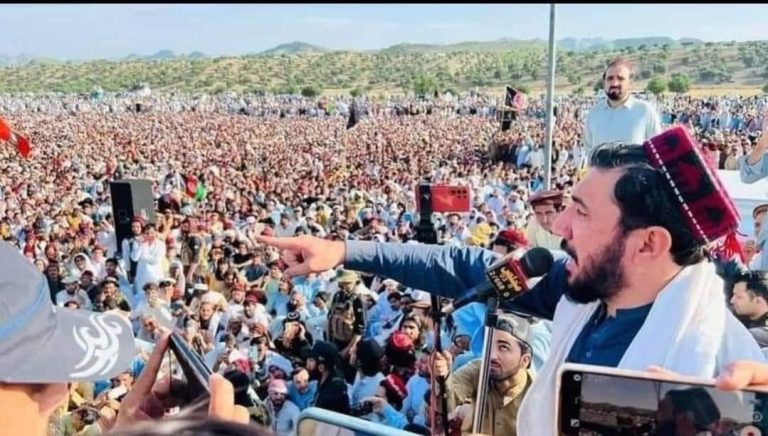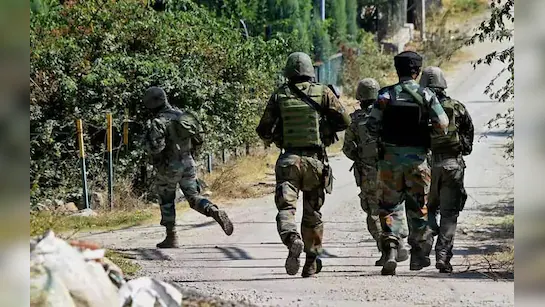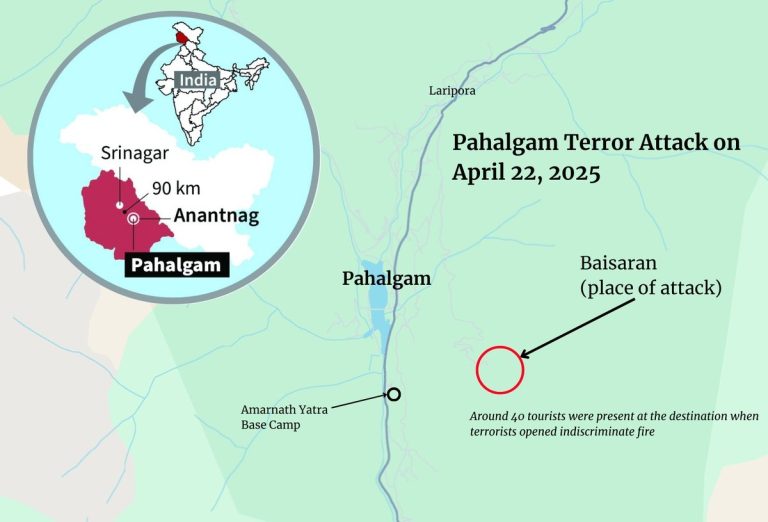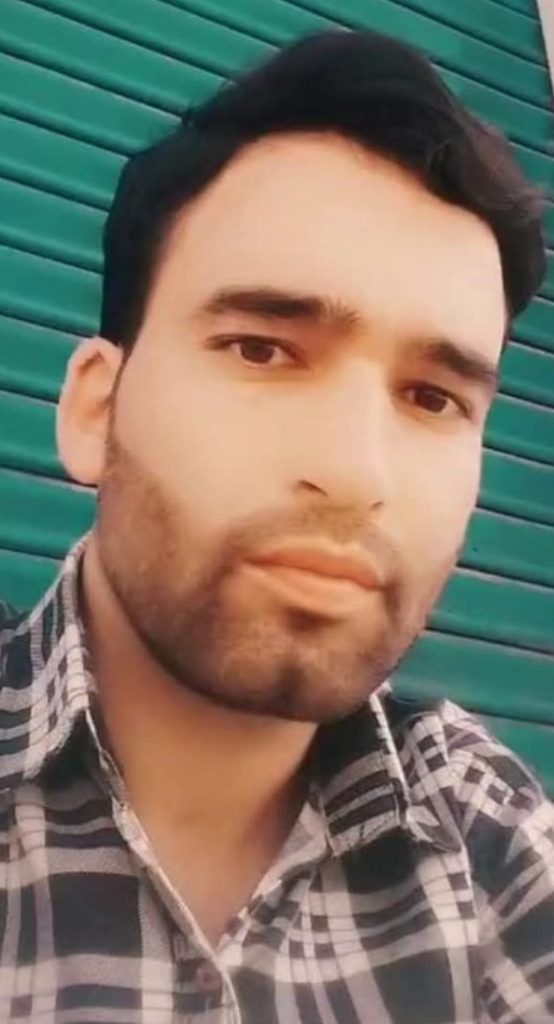Sound and Fury
The international community’s vociferous condemnation of the horrific Pahalgam terrorist attack on tourists in J&K’s Pahalgam area is indeed reassuring, and so is its unconditional expression of solidarity with India in its war against terror. However, there should be no cause for celebrations because past experience has proved beyond any doubt that expecting anything meaningful to emerge from this high decibel global rhetoric would be puerile.
India’s Ministry of External Affairs (MEA) disclosed that US President Trump had spoken to Indian Prime Minister Narendra Modi on the phone and “strongly condemned the (Pahalgam) terror attack and expressed full support to India to bring to justice the perpetrators of this heinous attack.” While he had also stated that “India and the United States stand together in the fight against terror,” by subsequently saying that “they’ll (India and Pakistan) get it figured out one way or the other, Trump conveniently washed his hands off this horrendous terrorist attack involving religious profiling. UK’s Foreign Office Minister Hamish Falconer appeared to be more forthright. He announced that “We want to see the perpetrators held to justice properly, and we will be supporting India to do so.” He also clarified that though the BBC had referred to this attack as “militancy,” the British government held the view that “this was a horrific terrorist attack.” However, in an apparent bid to pacify the British Muslim community, Falconer tried to give this barefaced terrorist attack a modicum of legitimacy by linking it to the Kashmir issue and calling upon India and Pakistan to resolve the same through “direct dialogue.”
Defiant Perpetrator
Despite sponsoring terrorist groups and employing them for waging proxy wars against India for over three decades, Pakistan remains defiant since the international community has shamelessly allowed it to (in the words of then US Secretary of State Hillary Clinton) keep “snakes” in the backyard for biting neighbours.
The fact that UN Security Council designated terrorist Hafiz Saeed carrying a US$10 million bounty announced by Washington under its ‘Rewards for Justice’ programme for masterminding the horrific 9/11 Mumbai terrorist attacks was able to roam about freely in Pakistan for seven years is, but one example of US double speak regarding its commitment.
Even Trump had in 2018 called out Pakistan’s perfidy by saying that “we have been paying Pakistan billions and billions of dollars at the same time they are housing the very terrorists [Afghan Taliban] that we are fighting.” But despite hosting both the Taliban, Al Qaida founder and 9/11 attack mastermind Osama bin Laden and a slew of other designated global terrorists, Washington took no action against Pakistan.
Accepting Terrorist Links
In a 2015 TV interview, Pakistan’s former President and ex-army chief Gen Pervez Musharraf unabashedly accepted that Pakistan was sponsoring terrorist groups. He revealed that “In the 1990s, the freedom struggle [sic] began in Kashmir. At that time Lashkar-e-Taiba and 11 or 12 other organisations were formed. We supported them and trained them as they were fighting in Kashmir at the cost of their lives.”
A few days ago, Pakistan’s Defence Minister Khawaja Asif was reminded by a journalist about Islamabad’s “long history of backing and supporting and training and funding these terrorist organisations.” Asif not only unhesitatingly admitted that “we have been doing this dirty work for the United States for about three decades, you know, and the West, including Britain,” but even had the gall to say that “If we had not joined the war against the Soviet Union and later on the war after 9/11, Pakistan’s track record… was an unimpeachable track record.”
And just the other day, Pakistan’s Foreign Minister Ishaq Dar openly flaunted Islamabad’s continued patronage to terrorist groups by disclosing that he had got reference to The Resistance Front [TRF] which had taken responsibility for the Pahalgam attack on tourists removed from the UN Security Council statement on this incident. He even came to TRF’s rescue by contending that it was merely a “forum” and as such couldn’t be classified as a terrorist group.
Despite Islamabad coming out in open support of a terrorist group that killed tourists after subjecting them to religious profiling, the international community’s stoic silence on Pakistan’s institutionalised patronage and such groups of cold-blooded murderers is inexplicable. It also goes to show that despite talking glibly about rejecting terrorism in all its forms and defending human rights, the world really doesn’t care or doesn’t want to get involved in addressing the growing scourge of terrorism.
India’s Response
While New Delhi has rightly been raising diplomatic ante against Pakistan’s proxy war through its sponsored terrorists posing as so-called “freedom fighters,” the fact that Islamabad is impervious to any civil discourse renders this approach futile. Hence, India needs to supplement diplomacy with other hard measures that hurt Pakistan because that’s the only language it seems to understand. However, the temptation to solely restrict such means to kinetic measures needs to be avoided for several reasons.
Firstly, striking terrorists and the infrastructure they use would only cause only temporary disruption in their activities. So, while kinetic actions definitely act as deterrents, it doesn’t hurt Rawalpindi much for two reasons- one since it has no obligation towards the next of kin of deceased terrorists, loss of terrorist fighters matters little especially since there are plenty of radicalised and unemployed youth to replace those killed. Two, infrastructure in terrorist training and billeting camps is rudimentary and requires little time and money for re-establishment.
Secondly, after the Balakot air strikes, ISI has started creating terrorist camps in close vicinity of populated areas and this greatly increases the chances of collateral damage. Even if this does not happen, it’s very easy for the ISI to orchestrate the same after any punitive attack. Moreover, repeated retributory strikes would give Pakistan the opportunity to portray India as an irresponsible muscle-flexing country as well as play the victim card, and with opportunist allies like China, Islamabad would be able to have its way.
Thirdly, assets (both individuals and equipment) being used for punitive strikes per se run the risk of attrition, no matter how well planned and professionally executed with advanced the technology the strikes may be, and the downing of seven state of art US drones including M9 Reapers by Houthis in Yemen during the last six weeks is a case in point. Hence, while the possibility of losing assets shouldn’t be an inhibiting factor, the financial implications and psychological impact in such an eventuality needs to be carefully weighed against the benefits being accrued.
Cost Effective Alternatives
While responding to a provocative act with appropriate force does have some salutary effect and placates public anger, it seldom serves as a permanent solution to the problem. In fact, this approach more often than not degenerates into an ongoing cycle of violence as governments try to and slake their peoples’ insatiable thirst for revenge. Hence despite its disadvantages, physical retribution becomes an indispensable part of every country’s national policy.
So, India should definitely consider punitive actions against Pakistan for not only masterminding the Pahalgam massacre but also defending the perpetrators. However, using indirect means to inflict sustained punishment on Pakistan needs to become the cornerstone of India’s anti-proxy war policy and New Delhi’s momentous decision of holding Indus Water Treaty in abeyance is a major step in this direction as it will undoubtedly hit Pakistan where it hurts the most.
Many analysts and experts opine that this action lacks legal legitimacy and have pointed out that New Delhi’s objective of not allowing a drop of water to reach Pakistan is unattainable as India doesn’t have the requisite infrastructure to store the diverted water. While this exposition does have merit, to rubbish the same on the grounds of it being legally untenable would be a grave mistake.
Indus Water Treaty may not have any provisions for unilateral actions. But then, when Pakistan has been openly violating international laws as well as UN Security Council resolutions by harbouring proscribed terrorist entities and groups as well as waging a proxy war in J&K, isn’t India well within its rights to find and exploit legal loopholes to combat Islamabad’s nefarious designs by holding Indus Water Treaty (IWT) in abeyance?
Holding that “The language of ‘abeyance’ is deliberate,” Nishant Sirohi, a Law and Society Fellow at Transitions Research brings out the fact that “India has neither withdrawn from the [IWT] treaty nor altered river flows, but paused procedural cooperation-using law, not water, for leverage.” He calls this “Legal diplomacy, where restraint amplifies impact,” emphasising that “India has not withdrawn from the treaty; nor has it diverted water flows or breached allocation quotas.” Sirohi’s argument is compelling. He has clarified that “India has temporarily suspended procedural cooperation, i.e. participation in dispute resolution forums, joint mechanisms, and routine diplomatic engagements tied to treaty operation.” Accordingly, he’s sanguine that New Delhi’s action “is not abandonment [of IWT]; it is a calibrated form of legal restraint, undertaken in the face of a long-standing, unaddressed wrongful state-sponsored act of terrorism that strikes at the core of trust on which the IWT was premised.”
Another viable option for New Delhi is to allocate and so position its Special Forces and sophisticated military hardware that they are capable of carrying out punitive strikes at short notice across the Line of Control [LoC]. The aim should be to present a credible and perpetual ‘threat in being’ that would tire-out the Pakistan Army and wear-out its equipment through prolonged deployment, forcing it to squander a substantial part of its meager foreign reserves for importing sophisticated military equipment to counter this threat.
As diplomacy has failed to resolve the issue of cross-border terrorism being sponsored by Pakistan, New Delhi needs to expand its armoury with an array of initiatives that by inflicting insufferable retribution that’s enduring in nature can drive sense into Islamabad. While the old adage about the way a man’s heart being through his stomach implies that a well fed person is amenable, doesn’t an empty stomach too make people equally agreeable?






